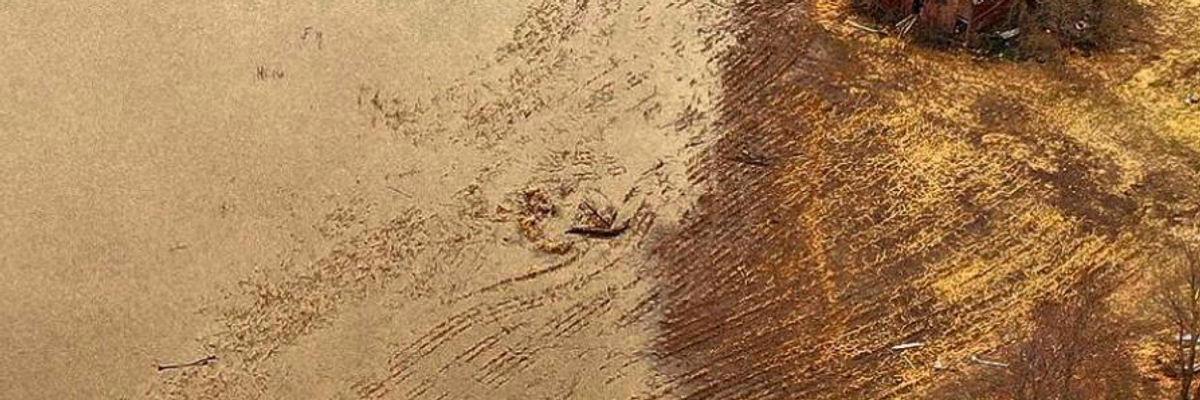It's commonly thought on the right (and sometimes on the left) that the United States will not be harmed too much by climate change. With our wealth, geography, and relative isolation from the rest of the world, we will be able to fence out climate refugees and continue to drive gas-guzzling SUVs until the end of time.
This idea is sorely mistaken. It's true that America will not be as catastrophically harmed as Bangladesh, India, or the Maldives. But we are far from immune--just witness this season's epic flooding across the Midwest, which has drowned farmland throughout the region. American farmers are paying for a generation of U.S. dithering and denial about climate change.
The last 365 days in the U.S. have been the wettest since modern records started being collected 124 years ago. A NASA analysis found that from "May 1, 2018, to April 30, 2019, the lower 48 states collectively averaged 36.20 inches (919.48 millimeters) of precipitation, a full 6.25 inches (158.75 mm) above the mean." This can be seen in satellite groundwater measurements from a few weeks ago:
Note especially how wet the Midwest is. Constant storms have caused enormous flooding across the entire region, not to mention a record-breaking streak of tornadoes, and farmers are suffering as a result. As of May 26, "U.S. corn planting [was] just 58% complete, compared with 49% last week and the five-year average of 90%." The figures in Illinois and Indiana were just 35 percent and 22 percent, respectively. Meanwhile, "Soybean plantings in the 18 states that represent 95% of the 2018 soybean acreage are only 29% complete, vs. the five-year average of 66%."
"I've never had a yield where I couldn't get my crop planted," Indiana farmer Kendall Culp told The Washington Post. "This is unprecedented, what we're facing." Even Culp's 80-year-old father had never seen it this bad.
Read full article here.





